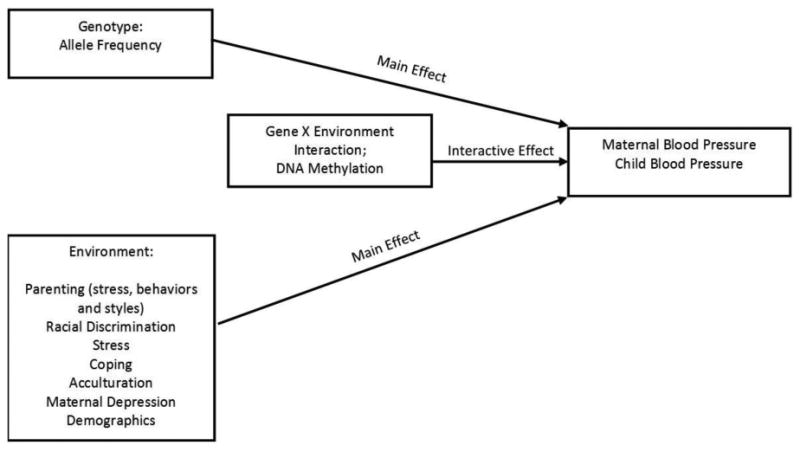Figure 1.

Theoretical framework for the Intergenerational Impact of Genetic and Psychological Factors on Blood Pressure Study (InterGEN). This framework is informed by Bronfenbrenner's bioecological theory of human development, which states that child development results from an interaction between the individual and his or her environment or context (Bronfenbrenner, 2005). This theory consists of four main elements: (a) the person's biology, genomics, and characteristics, (b) the reciprocal interactions between the child and the persons and objects in his or her immediate environment, (c) the environment, which may have an influence on the individual; and (d) how outcomes of interest remain stable or change over time (Tudge, Mokrova, Hatfield, & Karnik, 2009). Young children develop in an environment of relationships, and the maternal caregiver is most often the primary relationship. Mothers' experience of racial discrimination, depression, and parenting behaviors are important psychological environmental factors that impact the experiences and health of young children.
